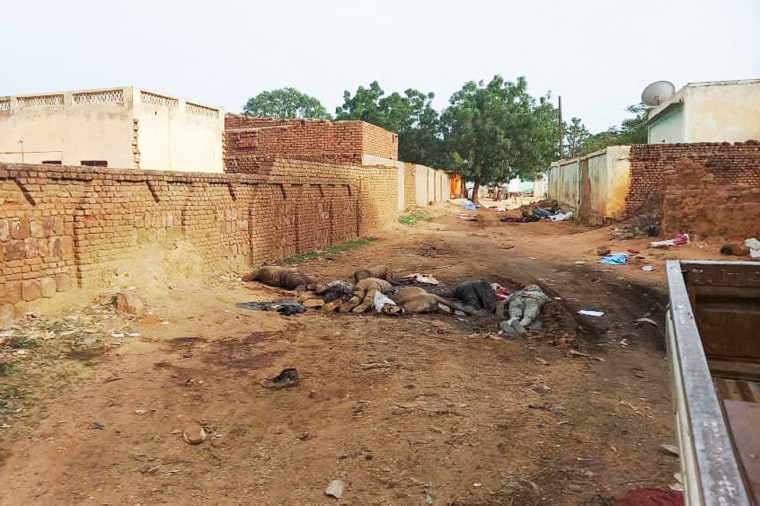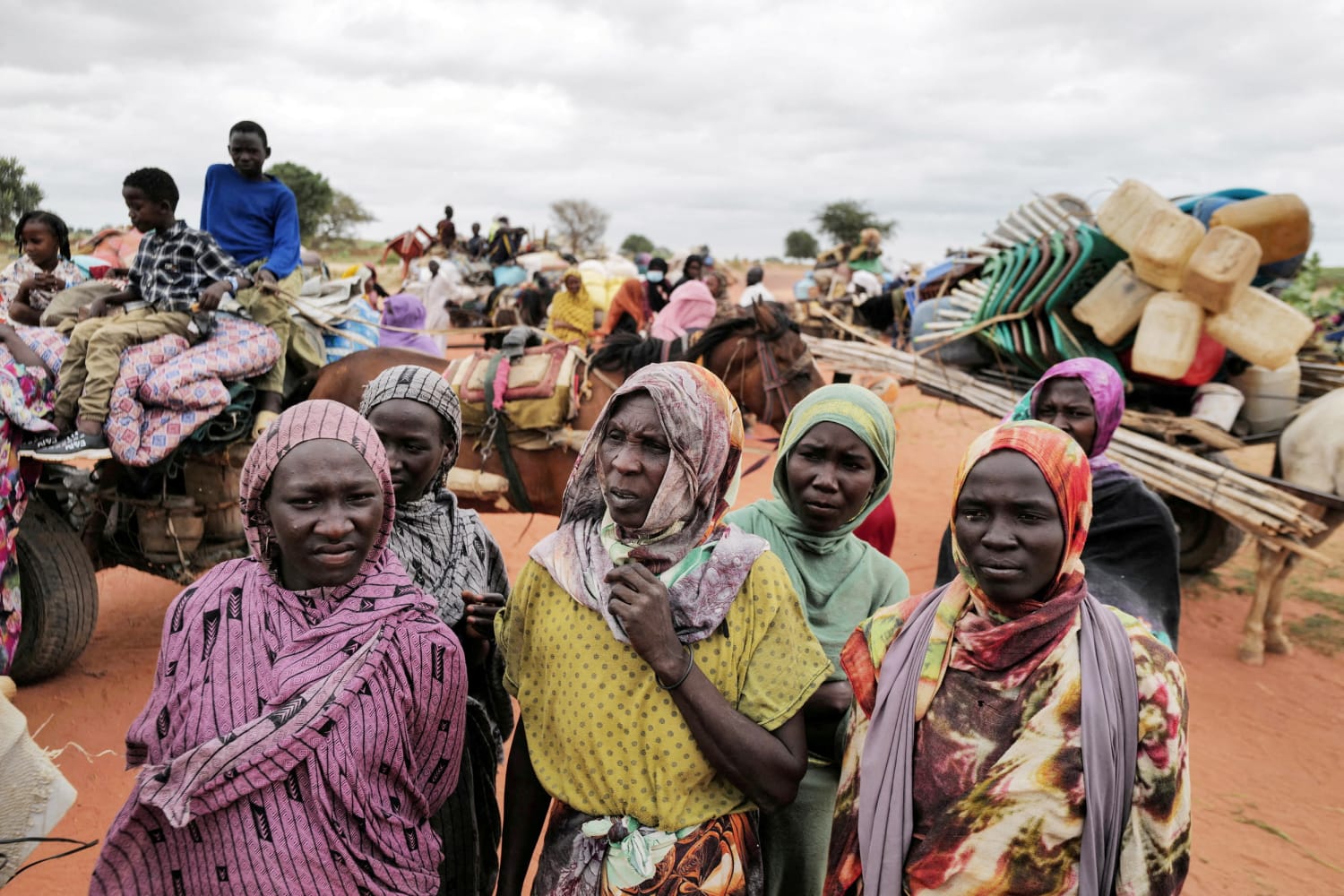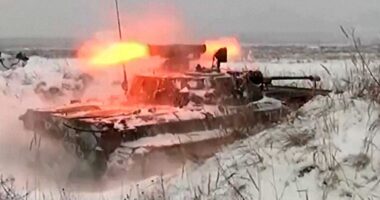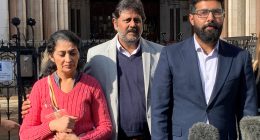‘Persistent hate speech’
With the Western world and its media’s attention focused on the war in Ukraine and nuclear brinkmanship by Russian President Vladimir Putin, the conflict in Sudan and the alleged atrocities in Darfur have continued in relative obscurity.
The U.N. and human right organizations have been raising the alarm and documenting ethnic and sexual violence experienced by those who fled El Geneina in June.
“All those interviewed also spoke of seeing dead bodies scattered along the road — and the stench of decomposition,” the Office of the U.N. human rights office said in a report. It included witness testimonies of “summary executions” and “the targeting of groups of civilians on the road between El Geneina and the border” — either by shooting at close range or opening fire at crowds.
The killings and other violence were accompanied by “persistent hate speech against the Masalit community,” the report said.
In July, a mass grave was discovered outside El Geneina, containing 87 bodies of ethnic Masalit. Allegations of war crimes and crimes against humanity in the Darfur region are now being investigated by the International Criminal Court. (The U.S. and Sudan are not parties tothe ICC.)
Doctors Without Borders, an international humanitarian group that runs a hospital in Adré, has documented almost 900 injured civilians arriving from El Geneina in just three days between June 15 and 17, one of the largest influxes of war-wounded patients the local teams have seen.
“People who crossed the border were really traumatized and with very serious injuries,” Laura La Castro, representative of the U.N. refugee agency (UNHCR) in Chad, told NBC News earlier this week. “At the beginning, we recorded some 2,000 people with injuries from bullets and firearms,” she said.

The mass exodus from the city appears to have followed the killing of the West Darfur governor, Khamis Abdalla Abkar, on June 14 shortly after he publicly accused the RSF and allied militias of targeting civilians.
NBC News contacted the RSF for comment about its alleged role in the described atrocities.
The RSF has denied the accusations that it’s behind the violence, Reuters reported earlier this week, while saying that any of its soldiers found to be involved would be brought to justice.
The RSF is a successor to the Janjaweed militia, accused by the U.N. of perpetrating ethnic cleansing between 2003 and 2005 in Darfur. Its senior leaders are still being prosecuted decades later for genocide and war crimes.
On Wednesday, the U.S. sanctioned three senior RSF commanders.
‘Gross atrocities’
Clemence Chbat, a midwife with Doctors Without Borders since 2017, said by phone from Paris that she saw at least 30 sexual violence surivors during her stint at the Adré hospital inside therefugee camp in late June.
Chbat, 34, said women slowly began sharing their stories and came “one after the other” once they learned that they could be given medical care for a sexual assault.
Some patients spoke of gang rapes, others said they were touched inappropriately by men at checkpoints in El Geneina and on the way to Chad.
“Three women, for example, had their vaginas checked to see if there was any gold or any money,” Chbat said.
Source: | This article originally belongs to Nbcnews.com









